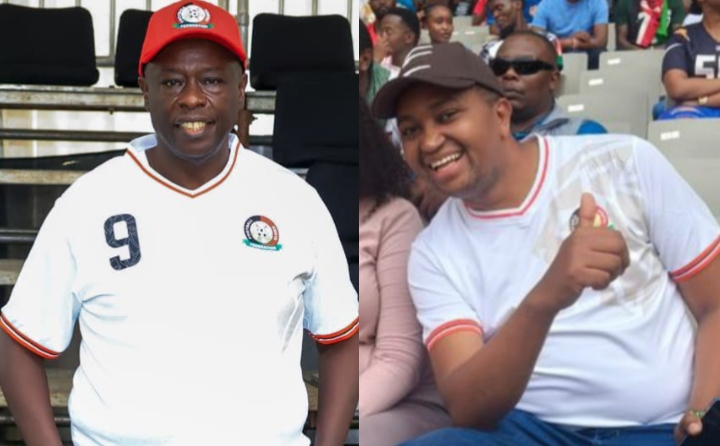Kenya has once again found itself caught up in heated debates about Rigathi Gachagua, the former Deputy President, with many Kenyans now branding him as a man whose presence only attracts misfortune.
The discussion started after Harambee Stars suffered a painful defeat to Madagascar in the CHAN quarter-finals. Before that match, the team had been performing strongly, lifting the spirits of the nation.
However, things took a different turn when Gachagua showed up after his return from the United States. The team lost on penalties, and many Kenyans online wasted no time pointing fingers at him, joking that his arrival was the reason behind the loss.
On X, several users said his presence was like a curse, and some even claimed the Stars would have advanced if he had stayed away.
This reaction was not simply about one football match. Kenyans recalled his past in politics, where he was often accused of toxic leadership and promoting division.
During his time in office, he openly admitted to favoring people from his own community, especially those from Nyeri, for government appointments.
These actions created anger and a sense of betrayal among other communities, who saw him as a leader who cared more about tribal loyalty than national unity.
The frustrations have now carried into sports, with many using hashtags such as #BlameRiggyG and #TheGachaguaCurse to illustrate how they feel his influence always seems to spoil the mood.
Irungu Nyakera, the Democracy for Citizens Party patron and a Nairobi gubernatorial hopeful for 2027, has also been dragged into the controversy. He stood side by side with Gachagua at the CHAN match and even welcomed him back at the airport. Nyakera presented himself as a politician pushing for unity, resilience, and opportunities for Nairobi’s youth and businesses.
But aligning himself with a figure as controversial as Gachagua has made many question his political judgment. Critics argue that associating with someone considered a “bad omen” could damage Nyakera’s credibility and undermine his ambitions in the city.
Gachagua’s record makes the concerns even more serious. His past has been linked to controversial moments in Kenya’s history, including accusations of working against his own community during the 1990s land clashes. He was accused of sabotaging other leaders and using divisive tactics for his own gain.
More recently, his attempts at political comeback have been seen as a threat to the fragile unity within the Mt. Kenya region. Some Kenyans still recall how he used emotional manipulation in politics, even drawing disturbing comparisons between past leaders and personal tragedies to win sympathy.
The anger over the CHAN loss was just another reflection of the frustrations surrounding his return. Many online users pointed out that while he was away, things seemed to improve, the economy showed some progress, sports victories came, and there was a sense of hope.
But his return was viewed as the start of renewed chaos. Even Nyakera’s defense of him on controversial remarks was seen by some as a worrying sign of misplaced loyalty.
For Kenyans, the issue has gone beyond football or politics. It has become about what kind of leadership the country truly needs. Many believe leaders like Gachagua represent a cycle of division, misfortune, and failed promises.
For Nyakera, his political future may depend on whether he chooses to stand alone or continue walking in the shadow of a man now widely seen as a symbol of bad luck.





















Add Comment